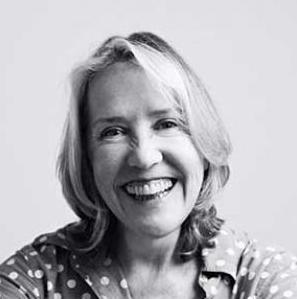5 May 2021 In Blog Post, Dialogue and Networking, Europe
Making change happen with science, economics, business sense and partnership
The Covid pandemic has been an appalling tragedy, cutting short the lives of millions around the world and leaving many others experiencing debilitating after effects. But tackling the crisis has also taught us about our ability to accept or reject change. We wear masks when we are near others, but we miss the human interaction of the “old life.” Covid has shown us we can scale up under pressure, but that we also make mistakes that we must learn from. These are lessons we must apply to the climate crisis. The pandemic provides us with a momentum where we know the new normal will not be like the old. We can use the opportunity to instill new habits, create new incentives, and try to really rebuild better and leave behind the bad habits and practices of the old normal. Having a new administration in the US and the opportunity for a complete policy overhaul in the European Green Deal has delivered a set of circumstances that ought to prove a turning point.
In short, we find ourselves with an opportunity to stop tweaking the way we live now and start a more meaningful conversation about how we should live.
As part of the SLOCAT Partnership, we know that systemic shifts are possible when business models and antiquated mindsets are disrupted. Over the last two decades, Environmental Defense Fund has gathered a breadth of on-the-ground experience in pushing in that direction, with results in the transport space to show for it.
We’ve worked closely with business to make the case for electrification, contributing to GM’s recent commitment to go fully electric by 2035 and promises from rideshare companies like Lyft and Uber to operate a fully electric fleet by 2030. In the UK and China, we’ve taken a data-driven science-based approach to mapping air quality hotspots and enabling governments to take targeted action. And through countless studies and stakeholder dialogues, we’ve sought to help policymakers and business leaders see that reducing carbon and methane emissions can have a fundamentally positive economic impact instead of the disastrous scenarios they’d long been more inclined to see. Whether you’re a city leader or high-powered executive, hard facts and data are simply hard to ignore.
Knowing what we don’t know
Despite our track record and depth of in-house expertise, we know that the key to making real change happen is finding great partners. We measure success not only by what we’re able to achieve but on what we’re able to help others get done.
We’re a relatively new partner of SLOCAT, but we have been impressed. We joined because we wanted to work with others, to be useful and additional, as we build up our work in Europe. Hot off the press and a direct result of our growing partnership network, is the newly announced SURF project with POLIS, which aims to help European cities create low Zero-Emission Zones for Freight to counteract recent jumps in urban freight traffic brought on by the pandemic.
Building the society we should build coming out of this pandemic will be no easy task. But with the right people, the right knowhow and a sprinkle of idealism, I’m confident we’ll come out better on the other side.
“We’ve got the expertise and global experience, if you’ve got the time.” I think that’s how the expression goes? Or it may just be a roundabout way of saying that we’re keen to partner where it makes sense and we’d love to meet you.
Do reach out.

Jill Duggan
Jill Duggan is the Executive Director of EDF Europe. She oversees EDF Europe, drawing on her extensive international career in climate, environment and energy policy. She is developing EDF's strategic vision for Europe, building partnerships with key EU stakeholders, drawing on EDF’s strong science and economics base to provide cross cutting resilient solutions to the 21st century environmental challenges.

Jill Duggan
Jill Duggan is the Executive Director of EDF Europe. She oversees EDF Europe, drawing on her extensive international career in climate, environment and energy policy. She is developing EDF's strategic vision for Europe, building partnerships with key EU stakeholders, drawing on EDF’s strong science and economics base to provide cross cutting resilient solutions to the 21st century environmental challenges.